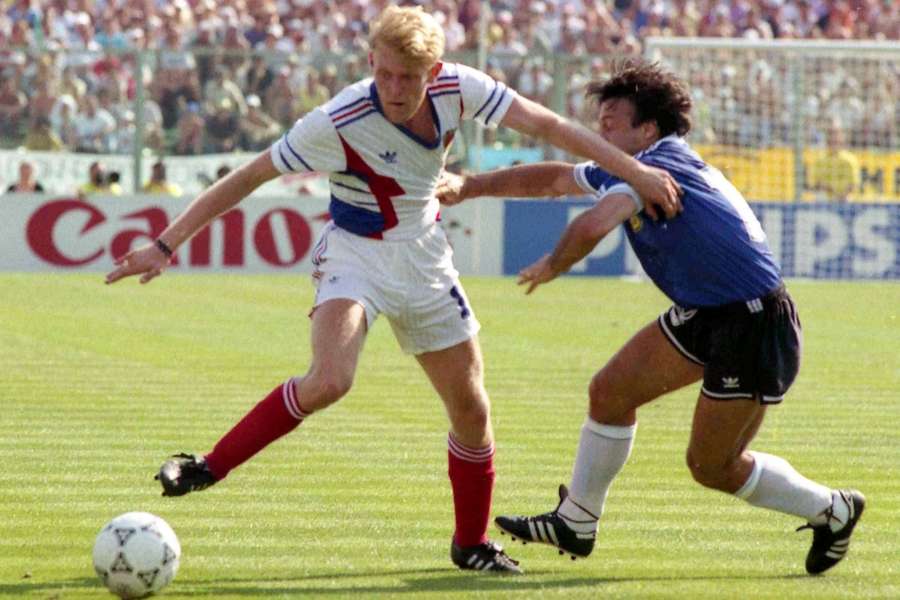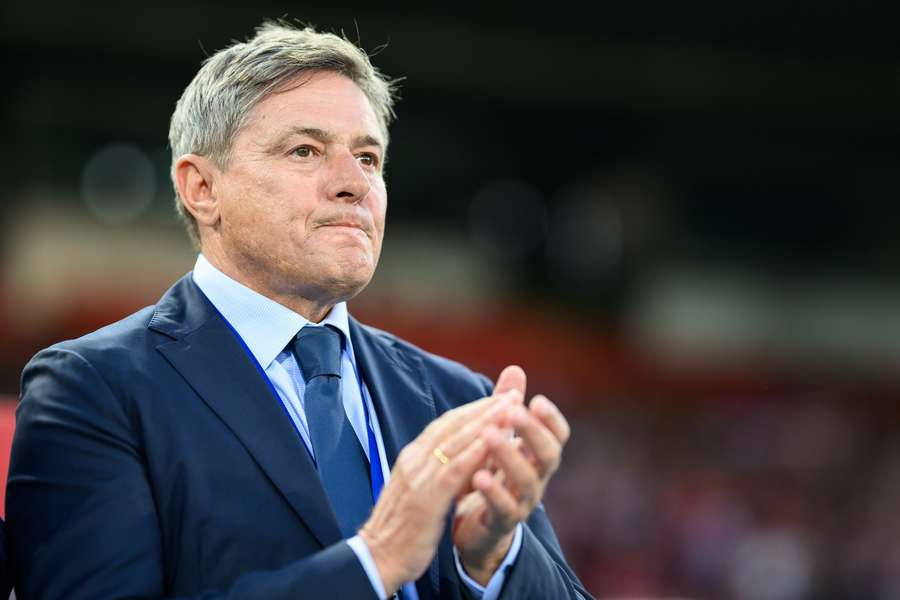The war that tore apart perhaps the best team in history before EURO 92

One morning in late May 1992, a fax from the European Football Association, UEFA, arrived at the DBU informing the association that Denmark would replace Yugoslavia at the European Championships as the Balkan team had been disqualified as a participant due to sanctions imposed by the UN.
Yugoslavia was then on the threshold of a decade with a golden generation of players who, due to the conflict in the Balkans, were never really allowed to play together in a unified national team with players like Sinisa Mihajlovic, Davor Suker, Predrag Mijatovic, Robert Prosinecki, Vladimir Jugovic, Zvonomir Boban, Dejan Savicevic, Alen Boksic, Dragan Stojkovic and Darko Pancev.
About a month later, Denmark had become European champions after sending shockwaves through most of European football with a team that had already been sent on a summer holiday.
But while the European Championship triumph in Denmark created a fusion of people across age, social and cultural differences, the death of President Josip Broz Tito back in 1980 was the first step towards a Balkan war where ethnic and religious tensions tore Yugoslavia apart and eventually created seven new nations, Serbia, Croatia, Macedonia (now North Macedonia), Bosnia and Herzegovina, Slovenia, Montenegro and Kosovo.

It created a human tragedy where thousands of people lost their lives in terrible battles and massacres and at the same time robbed the football world of one of the most fearsome teams in history, a team that would have been vastly superior to the later Danish European champions in every position.
The blueprint for the team that qualified for EURO 1992 came as early as 1987, when Yugoslavia won the FIFA Under-20 World Cup in Chile.
Before the tournament, there were no expectations for the team at all and a number of key players like Sinisa Mihajlovic, Vladimir Jugovic and Alen Boksic were told it made more sense to stay home and play in the Yugoslavian league.
Red Star also wanted Robert Prosinecki home for an important cup match, but FIFA said no and he subsequently developed into one of the tournament's best players. However, this was not a one-man team.
Prosinecki was also helped by players like Zvonimir Boban, Davor Suker, Robert Jarni and Predrag Mijatovic, who put Brazil to the sword before West Germany were beaten in the final on penalties.
At the time, Yugoslavia had the best team in the world in their age group, but they never got to reap the rewards of perhaps the most talented generation ever seen in modern football.
When you consider that the players already mentioned would have been flanked by the likes of Dejan Savicevic, Darko Pancev, Dragan Stojkovic and Screcko Katanec, it is one of the greatest tragedies in football history that a number of those players never got to play together.
One of the goalscorers from the Yugoslavian team that defeated Denmark 2-0 in Parken in 1990, Mehmet Bazdarevic, recalls the composition of the team.
"Four players who played that day were from Croatia, four of us were from Bosnia, then there was Predrag Spasic from Serbia, Pancev from Macedonia and Srecko Katanec from Slovenia. Although Denmark was a good team, we were much better than them."
Zvonimir Boban, who replaced Pancev in Copenhagen, is particularly interesting because he plays a central role in the political tensions that formed the prehistory of the Balkan conflict.
A month before the 1990 World Cup, the political fronts had been sharply divided by the later Serbian war criminal Slobodan Milosevic and Croatian nationalist Franjo Tudjman, and the conflict ignited the flame that would bring emotions to a boil in a match between Boban's Dynamo Zagreb and arch-rivals from Serbian club Red Star Belgrade.
On top of the crowd disturbance at the stadium, 21-year-old Boban karate-kicked a policeman in the back, who he felt had treated the Croatian spectators badly.
As the Dutch author Erik Brouwer, who described the incident in detail, later put it: "Many Croats feel that with that kick their nation was born". The following year, the powder keg exploded when Slovenia and Croatia declared independence.
Shortly before, Yugoslavia had achieved one of its greatest triumphs in its sporting history when Red Star won one of the most boring championship finals in history in Bari after a penalty shootout against an Marseille team featuring such greats as Chris Waddle, Jean Pierre Papin and Basile Boli.
But when the first missiles started raining down on the Balkans, the Red Star's star-studded squad was scattered across Europe, with players like Prosinecki, Mihajlovic and Savicevic achieving huge personal success at big teams like Real Madrid, AS Roma and AC Milan.
In terms of national teams, the remnants of the Yugoslavian dynasty crumbled into a series of newly independent nations.
No Balkan teams took part in the 1994 World Cup, but the 1998 World Cup signalled just how strong the Yugoslavs could have been when Croatia won bronze with players like Prosinecki, Boban, Jarni, Boksic and Suker.
Forgotten is the fact that a Serbian-Montenegrin team, fielded as FR Yugoslavia, lost to the Netherlands in the 1/8 finals.
Today, former Bosnian coach Faruk Hadzibegic, one of the stars of the team that qualified for 1992, can look back on the times when a united Yugoslavian team was ready to set European football ablaze.
"I can tell you one thing: If we had all stayed together, if we had played that tournament under normal circumstances, if we had had a chance to compete, I'm sure we would have won the European Championship. We would have won EURO 92."



